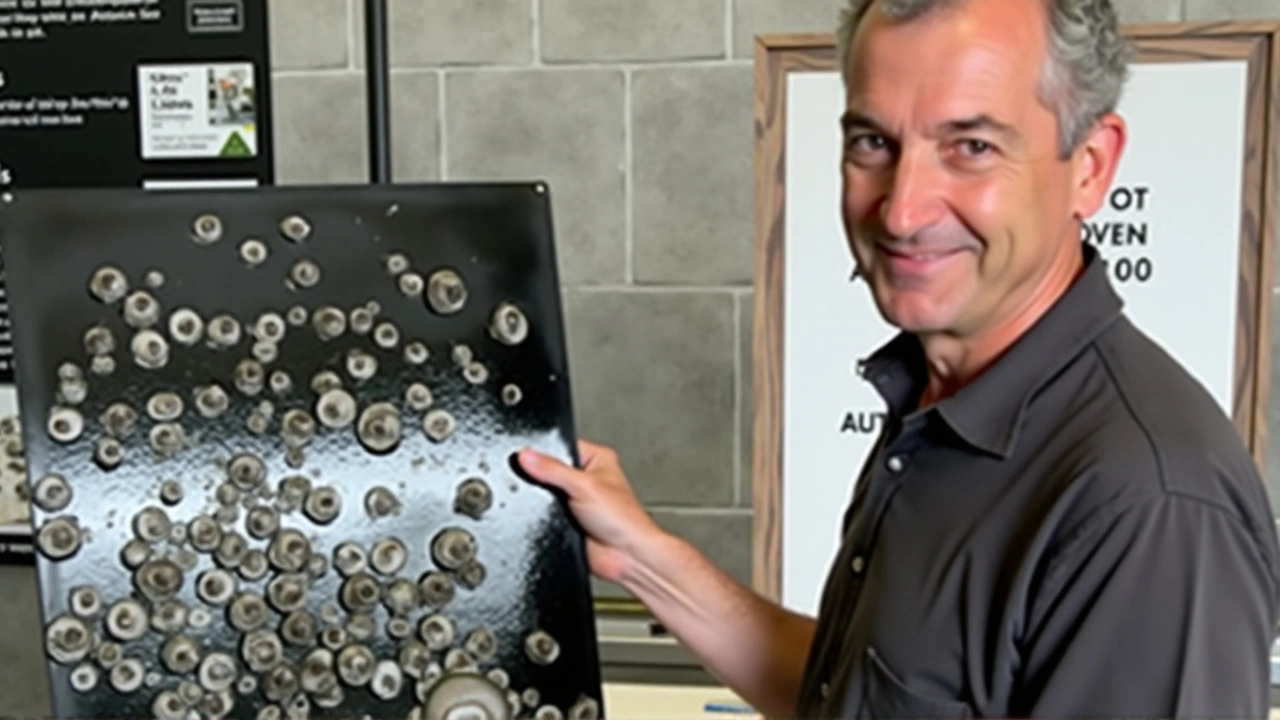The Rise of Abalone Aquaculture in France
The story of France Haliotis, a pioneering abalone farming company based in France, is one of remarkable tenacity and ingenuity. France Haliotis decided to venture into the field of aquaculture, focusing on abalone—a type of shellfish heralded as a delicacy in various parts of the world but notoriously difficult to cultivate. The journey commenced with enthusiasm but was soon met with unforeseen challenges.
Environmental constraints were among the first hurdles. Abalone requires pristine water conditions, precise temperature controls, and clean habitats to thrive. Unlike other forms of aquaculture, such as oyster or mussel farming, abalone's needs are extremely specific and demanding. France Haliotis quickly understood that maintaining these conditions in a controlled environment was both complex and resource-intensive.
Facing Market Fluctuations
Another major obstacle was the volatility of the seafood market. The demand for abalone can be unpredictable, making it tough for producers to maintain a stable income stream. Market preferences shift rapidly, and the entry of global competitors can make an already difficult business even more precarious. France Haliotis had to navigate these market dynamics carefully, ensuring they had a viable outlet for their products despite the uncertainties.
Innovative Techniques in Abalone Farming
Amidst these challenges, France Haliotis adopted a series of innovative farming techniques. One of their significant breakthroughs was the implementation of recirculating aquaculture systems (RAS), which allowed them to maintain optimal water conditions regardless of external environmental factors. By constantly filtering and reusing the water, they ensured the abalone had a stable and clean habitat, crucial to their growth and health.
Moreover, they invested heavily in research and development. Teaming up with marine biologists and aquaculture experts, France Haliotis refined their farming processes. They experimented with different diets, breeding techniques, and habitat structures to find the perfect conditions for abalone growth. This continuous quest for improvement demonstrated their commitment to overcoming the inherent difficulties of abalone aquaculture.
Building Relationships with Local Stakeholders
Another pillar of their success was forging strong relationships with local stakeholders. France Haliotis worked alongside local fishermen, environmentalists, and regulatory bodies to create a network of support and collaboration. By involving the community, they garnered not just local support but also valuable insights and assistance. This collective effort ensured that their operations were both sustainable and socially responsible.
These partnerships also extended to local markets and restaurants. By promoting their abalone as a unique and premium product, France Haliotis managed to secure consistent buyers willing to pay top dollar for their harvest. This strategy helped mitigate some of the market risks and provided a more predictable revenue stream.
Resilience and Adaptability: Keys to Success
The journey of France Haliotis is a testament to the power of resilience and adaptability in the face of adversity. Their willingness to embrace new technologies and invest in scientific research played a critical role in their ability to survive and thrive. It's a story that underscores the idea that success in the aquaculture industry is not just about profitability but also about sustainability and community support.
Resilience became their hallmark, as they navigated through periods of financial strain, environmental challenges, and market downturns. The commitment to their vision of sustainable and high-quality abalone farming never wavered, a stance that eventually led to their recognition and success.
Economic and Environmental Impact
The success of France Haliotis has broader implications for the aquaculture industry and the environment. By proving that abalone can be sustainably farmed, they have set a precedent for other producers. Their techniques and innovations are now studied and emulated by other aquaculture ventures worldwide.
Moreover, their operations have significant economic benefits for local communities. Job creation, skill development, and economic diversification are some of the positive impacts generated by their success. This ripple effect shows that sustainable aquaculture can be a viable path to economic and environmental well-being.
Conclusion
France Haliotis's journey from struggling abalone farmers to thriving aquaculture pioneers is nothing short of inspiring. Their story serves as a powerful reminder that with the right mix of determination, innovation, and community support, it is possible to overcome even the most daunting challenges. For other producers in the aquaculture industry, France Haliotis stands as a beacon of hope, demonstrating that sustainable practices and profitability can go hand in hand.

